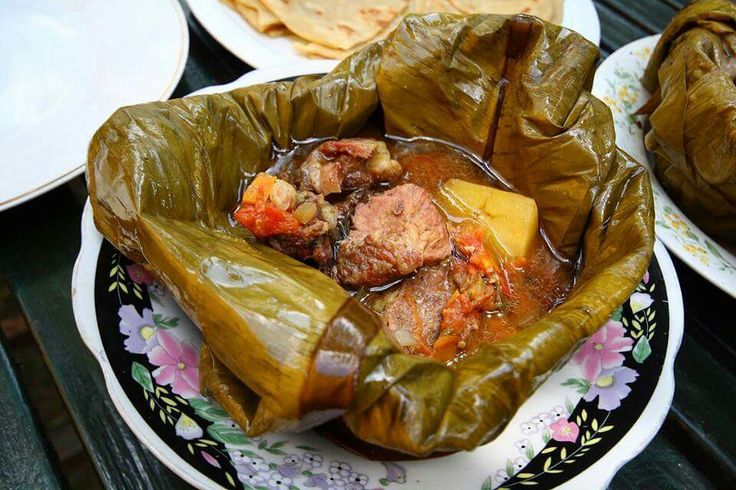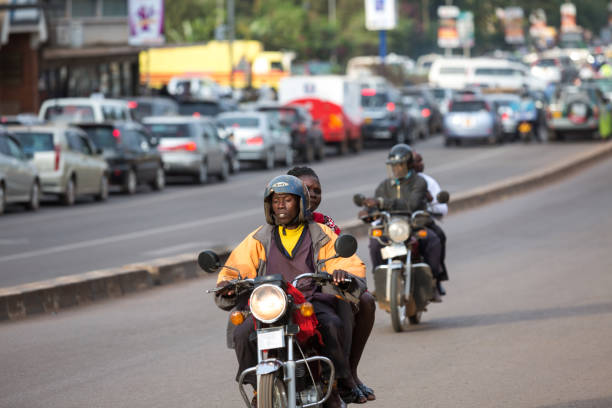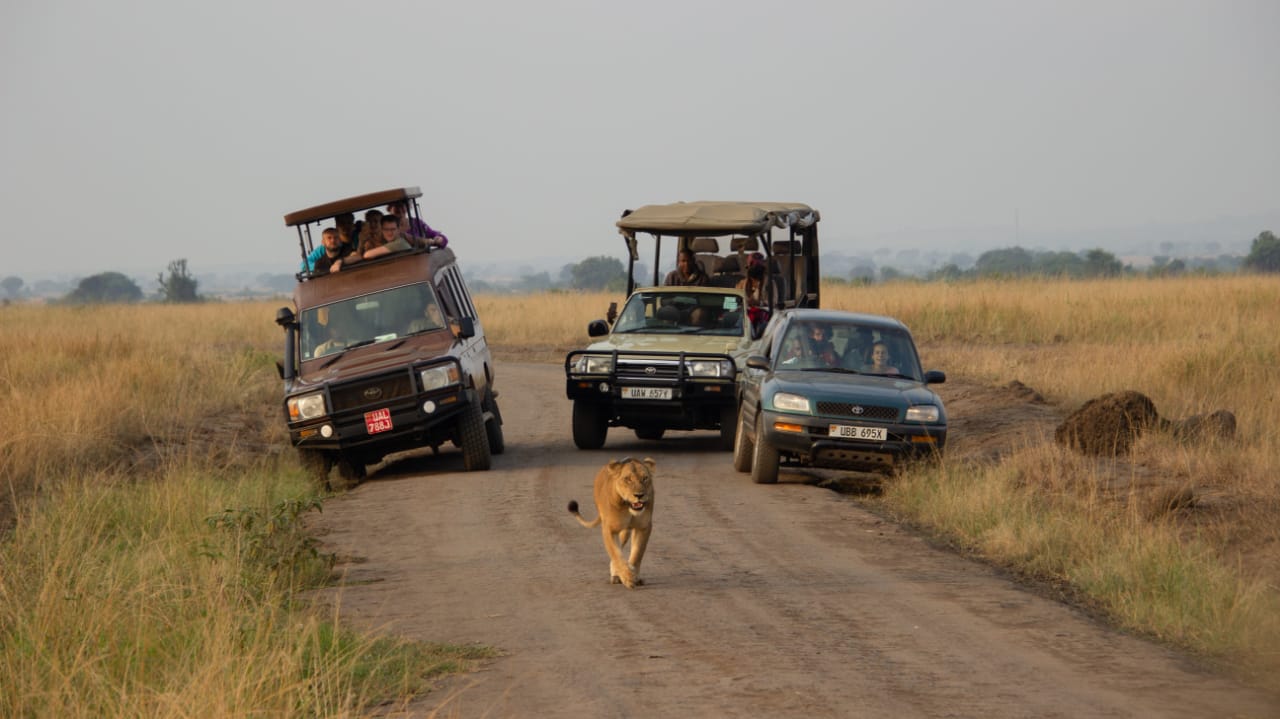Exploring Uganda, the “Pearl of Africa” with Jungle car rental Uganda is not just an adventure! It is an experience of a lifetime! Uganda boasts stunning landscapes, rich biodiversity, and a vibrant culture. From the majestic mountains of the Rwenzori to the lush jungles of Bwindi, Uganda offers countless adventures for budget travel visitors, waiting to be explored.
However, many travelers might hesitate to visit this magnificent country due to budget concerns. The good news is that you can absolutely enjoy an amazing experience in Uganda without putting a strain on your budget. With some careful planning and smart choices, you can make the most of your trip while keeping costs low. One of the most budget friendly ways of exploring Uganda is by renting a vehicle from a Car rental Uganda agency, particularly Jungle Uganda car rental. In this article, we will explore various strategies to travel on a small budget in Uganda while still having a fantastic time.
Plan your trip during off-peak seasons
The low of demand and supply also applies in tours and travel. Essentially, when demand exceeds supply, prices rise, and when supply is greater than demand, prices fall, moving toward a market-clearing equilibrium price where the quantity demanded equals the quantity supplied. During the peak tourist season of June to September and December to February, the demand for services like accommodation, car rental, activities and flights is high due to high demands.
That is why it is smart to travel during the off-peak seasons of March to May and October to November. During this time, tourism numbers drop, leading to reduced prices for accommodations, activities, and even some flights. Additionally, visiting during the off-peak season allows for a more immersive experience with fewer crowds at popular attractions. The only downside about these seasons is that they coincide with the rainy season which may affect the road conditions and activities. However, you can rent a 4×4 vehicle from Jungle Uganda Car rental which can navigate any road conditions and pack for the weather in order to enjoy your activities
Enjoy local cuisine

Dining out can quickly add up, but opting for local cuisine at roadside stalls and small eateries can save you a significant amount of money while giving you a taste of authentic Ugandan dishes. Foods like Rolex (a rolled chapati filled with eggs and vegetables), Luwombo (a traditional stew), and Matoke (steamed bananas) are not only affordable but also delicious. Eating where the locals eat will often provide you with a more genuine culinary experience and a chance to interact with residents. Note that there are places that offer fine dining all over the country but they shouldn’t be your go-to if you’re travelling on a budget.
Prioritize free or low-cost activities
Uganda offers a wealth of free or low-cost activities that allow you to explore its beauty without spending much. Many national parks have relatively low entrance fees, and your experience of wildlife tracking, hiking, and birdwatching can be incredibly rewarding. You can also visit tribal and cultural sites, like the Ndere Cultural Centre in Kampala, which offers performances and workshops at affordable rates. Taking walking tours of local neighborhoods or joining community projects can also provide insights into Ugandan life without hefty costs.
Embrace nature
You don’t need to spend a lot on activities to experience Uganda’s natural beauty. Spend time hiking in the nearby hills or exploring Lake Victoria’s shores. Birdwatching is a free activity that can be done almost anywhere, as Uganda is home to over 1,000 species of birds. Many parks and reserves allow visitors to trek through beautiful landscapes, where the only cost might be a small entrance fee for the park. Also, the Uganda Wildlife Authority (UWA) offers annual Open Park Days where entrance and activities to all national parks in the country are free of charge. Keep track of these days on the UWA website and plan your travel on these days to significantly cut your budget.
Use public transportation

While a car rental Uganda might seem convenient, using public transport is significantly cheaper and can add to the local experience, especially when it is for urban travels. Shared taxis and buses serve various routes throughout the country and are an affordable way to travel between cities and towns. Although the journey might take longer than driving, it allows you to interact with locals and immerse yourself in the culture. For shorter distances within cities, motorcycle taxis (boda-bodas) are a quick and inexpensive option, but always negotiate the fare before getting on to avoid being over charged.
Negotiate prices
In Uganda, haggling is commonly accepted, especially in markets and when using transportation services. Don’t be afraid to negotiate the price when booking accommodations, hiring guides, reserving a car rental Uganda, or purchasing items from vendors. Establishing a friendly rapport with sellers can often lead to better deals but approach the process with respect and an open mind.
Travel with a group
Traveling with a group can significantly reduce costs as you can share expenses, whether it’s for accommodation, meals, or transport. Group tours for safaris or excursions can be more economical, as many operators offer discounts for larger groups. If you’re traveling solo, consider connecting with others in hostels or online travel forums to form a group for adventures. This not only cuts the budget but also makes the trip more exciting with the newly found travel buddies. At Jungle car rental Uganda, we offer discounted rates for group travels to ensure that you have a memorable time without putting a strain on your finances.
Choose budget accommodations

Accommodations can eat up a significant part of your travel budget, but Uganda offers numerous budget-friendly options. Hostels, guesthouses, and camping sites are widely available and can provide a comfortable place to stay without the hefty price tag.
Many hostels in cities like Kampala and Jinja, and other to offer dormitory-style rooms, which are a great way to save money especially if you’re travelling as a group. Budget accommodations can range anywhere between $20-$60 with basic amenities. Camping is a fantastic and budget friendly way to experience Uganda’s natural beauty. Popular national parks such as Queen Elizabeth and Murchison Falls have well-maintained campsites. You can also consider hiring a vehicle with a rooftop tent from Jungle car rental Uganda to further cut the costs.
Be mindful of currency exchange rates
When traveling to Uganda, familiarize yourself with the local currency, the Ugandan Shilling (UGX). You can often find better exchange rates at local banks or currency exchange offices rather than at hotels or airports. Additionally, consider withdrawing cash from ATMs to get a better rate. Remember to notify your bank of your travel plans to avoid any issues while using your debit or credit card.
Cut expenses on souvenirs
While it’s tempting to buy souvenirs, they can add up quickly and eat into your travel budget. Instead of purchasing numerous items, capture your memories through photos. Take pictures with local artists or craftspeople and consider making a small donation in return for their time. Alternatively, procure one or two meaningful items that genuinely represent your experience without overspending.
Traveling on a budget in Uganda is not only feasible but can lead to a richer and more rewarding experience. Uganda has much to offer to budget travelers seeking adventure and discovery. With an open mind and a flexible spirit, you can immerse yourself in the charm of Uganda while keeping your expenses low, ensuring that your journey through this magnificent country is as fulfilling as it is affordable. Overall, you need a trusted travel partner and Jungle Car rental Uganda is here to meet all your travel needs.

